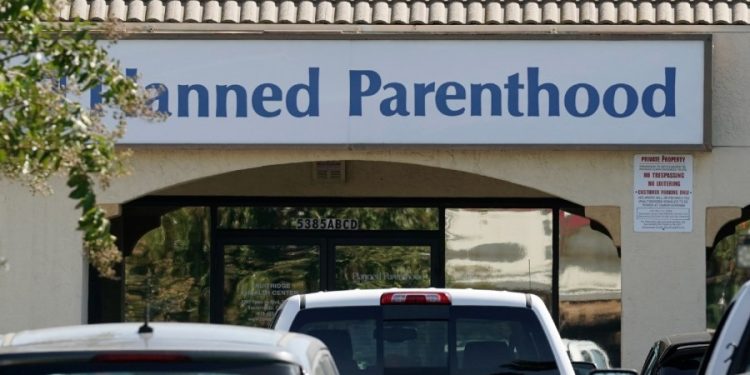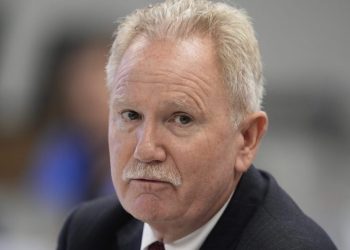Planned Parenthood will soon open a mobile abortion clinic in southern Illinois as part of an effort to expand access in Missouri and across other parts of the Midwest where the procedure is almost entirely banned.
The mobile clinic will help reduce travel distances, wait times and other logistical barriers impacting patients in neighboring states where abortion is banned, said Yamelsie Rodriguez, President of Planned Parenthood of the St. Louis Region and Southwest Missouri.
“One hundred days post-Roe we stand in defiance to say: we are not backing down,” Rodriguez said in a statement. “Abortion bans, ‘defunding’ Planned Parenthood, and attacks on reproductive freedoms writ large are deeply unpopular. We’re standing in the gap created by politicians and ensuring all people can access the health care they deserve, no matter where they live.”
Illinois has become a haven for people in other states seeking an abortion since the Supreme Court overturned Roe v. Wade and ended the constitutional right to an abortion in June.
Rodriguez said wait times at Planned Parenthood’s Fairview Heights clinic in Illinois, just across the state line from St. Louis, have increased from four days to two and a half weeks.
Missouri’s “trigger law” banned abortion the day Roe v. Wade was overturned, and Planned Parenthood ceased all abortion services in the state.
The Fairview Heights health center was built for a post-Roe reality, but the surge in patients came much faster than anticipated, she said.
According to Roriguez, the mobile clinic will be set up inside of a retrofitted RV and will contain a lab, a waiting area and two exam rooms. The clinic will offer medication abortion services up to 11 weeks gestation, but will likely be converted into procedural rooms for surgical abortion care by the first quarter of next year.
The mobile unit will operate in Illinois only, but the aim is to reduce the miles patients are traveling for care while also relieving pressure on the Fairview Heights facility.
In Illinois, Planned Parenthood has provided medication abortions through telehealth — which is banned in Missouri — and can mail the pills to patients.
The massive increase in demand and the longer distances patients need to travel for an abortion in the 100 days since Roe was overturned has led more people seeking abortions later in pregnancy, including at gestational ages where medication abortion isn’t available.
The mobile clinic will be key to redistributing that demand, said Colleen McNicholas, Planned Parenthood of the St. Louis Region and Southwest Missouri’s chief medical officer.
One of the first tasks will be to determine the best routes for the mobile clinic. Planned Parenthood is reviewing data to determine where patients are coming from, and the goal is to have the clinic operational by November.















